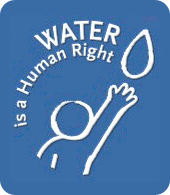Third party needed to facilitate stalled peace process, MEPs should meet Öcalan
European Parliament Conference 'Turkey, the Kurds and the Imrali Peace Process: An Historic Opportunity' Final Resolution
Introduction
The 10th EU Turkey Civic Commission (EUTCC) conference, on EU, Turkey and the Kurds, held December 2013, under the theme ‘Turkey, the Kurds and the Imrali Peace Process: A Historical Opportunity’ was attended by EU parliamentarians, civil society activists, journalists, academics and politicians from across Turkey, Europe, America and the Middle East. The conference provided for rich discussions regarding the Kurdish question in Turkey. In particular it discussed the peace process undertaken by Turkey’s Prime Minister, Recep Tayyip Erdogan and the leader of the PKK, Mr. Abdullah Ocalan. Participating organisations and individuals expressed support for a political solution to the Kurdish question in Turkey and put forward recommendations.
The conference believes that Turkey’s accession into the European Union will increase the possibility for a peaceful permanent solution and that such a peaceful solution can only be achieved through dialogue between the parties. However the conference notes that the current peace process is hurtling towards an impasse. The conference hopes that this impasse is overcome soon and that the peace process will be revitalised recognising that the peace is a necessary condition for negotiations and for the deepening of democracy for the peoples of Turkey.
The 10th annual EUTCC Conference resolves as follows;
With regard to The Peace and Negotiation Process
The conference notes that:
The Kurdish question is long standing with its roots in the denial and the disregard of the Kurdish people and of their demands and that furthermore any solution of this question can only be solved by officially acknowledging the existence of the Kurdish people and recognising its will;
The Kurds and all other peoples of Turkey want a solution to this question and understand that only negotiation between all parties will lead to a peaceful permanent solution and that the peace process undertaken by the Prime Minister of Turkey Mr. Erdogan and the leader of the PKK Mr. Ocalan is very important and the current impasse is therefore upsetting;
The 2013 EU Progress report for Turkey acknowledged that: “the launch of the peace process raised considerable hope… The peace process moved forward in parallel with a number of confidence building measures. A vast number of KCK court cases continued but with a number of releases pending trial. The village guard system remained a cause for concern.”
The conference therefore resolves that:
1. A third party facilitator/mediator be introduced to renew the stalled peace process;
2. The government should introduce legislation that ensures a legal platform and conditions for Mr. Ocalan to create and freely lead his negotiating team and these negotiations must result in legal and constitutional amendment;
The conference therefore calls on
3. The government of Turkey to release Mr. Ocalan in order that he may establish and lead his negotiating team to be able to effectively participate in the peace negotiations
4. The government of Turkey to introduce such enabling legislation as a matter of utmost urgency.
With regard to Legal and Constitutional Rights
The conference believes that only official recognition of the Kurdish people will allow Turkey to develop into a stronger democracy
The conference notes that:
The 2013 EU report states that”... Formal introduction of an announced arrangement to legalise the provision of public services in languages other than Turkish, notably Kurdish, as recommended by the Council of Europe’s Congress of Local and Regional Authorities, is pending.”
In November 2013 in Diyarbakir the Turkish Prime Minister Mr. Erdogan proclaimed that ‘those in the mountains will come down, prisons will be emptied.’
The conference resolves that:
5. The existence, identity and culture of the Kurdish people, the right to self-administration and the right to an education in Kurdish at all levels must be constitutionally guaranteed
6. A comprehensive political amnesty should be instituted to allow everyone to take part in democratic politics.
The conference therefore calls on the government of Turkey and the EU to,
7. Constitutionally guarantee the existence, identity and culture of the Kurdish people; the right to self-administration and the right to an education in Kurdish at all levels and;
8. Institute a general political amnesty.
With regard to Human Rights Abuse, Regional and Local Democracy
The conference notes that:
The courts in Turkey function with too wide of a definition of terrorism in the Turkish Penal Code. During prosecutions this wide definition is utilized in penalizing people for activities such as hand clapping, shouting slogans, throwing stones, carrying a lemon in the pocket, wearing a scarf or burning a tyre that are not in any way connected to terrorism. The conference furthermore notes that thousands of journalists, academics, students, politicians and human rights activists are in prison due to article 314 of the Turkish Penal Code;
The 2013 EU progress report raises a similar concern and states that, this situation is impeding Turkey from developing its democracy. The report states that it ‘...continued to lead to the arrest and detention of many BDP-affiliated Kurdish politicians, party activists, locally elected mayors and members of municipal councils, adversely affecting the exercise of regional and local democracy’;
Each month prisoners who are ill die because of lack of adequate medical care.
The conference resolves that:
9. Article 314 of the Penal code of Turkey should be abolished and that cases conducted under this article be stopped and retried;
10. Those imprisoned under article 314 of the Turkish penal code be released and that those who are seriously ill be released as a sign of good will;
11. The EU, EC and UN be petitioned to encourage the government of Turkey to abolish article 314 and release those imprisoned under this legislation.
The conference calls on Turkey to:
12. Abolish section 314 of the penal code ;
13. Stop the cases that are being conducted under this section;
14. Retry those that have been sentenced in accordance with this section of the penal code;
15. Immediately free those imprisoned under article 314 of the Turkish penal code (for non-violent political activity);
16. To release political prisoners, who have health problems, are seriously ill and whose lives are in danger immediately as a sign of good will.
Regarding the Peace Process and Syria
The conference believes that without supporting a free and democratic future for the Kurds in Syria, a commitment to the peaceful solution of the Kurdish question in Turkey will seem insincere.
The conference notes that:
The conflict in Western Kurdistan (Rojava) has a negative impact on the peace process underway in Turkey because, the Salafists, linked to Al –Quaida, are using Turkey for their base and logistics and that this is undermining the trust between the dialoguing parties who have implemented a bilateral ceasefire.
The conference resolves to:
17. Support the Rojava struggle and the search for a unified administration between the Kurdish people and other peoples of the region; we respect the principle of a people’s right to self-determination and condemn any action that abuses this right.
18. Support the official invitation of the Kurds of Rojava to Geneva 2 as the exclusion of the Kurdish people from this conference will ensure the failure of all efforts for a solution.
19. Encourage the EU parliament to write to the ministers of foreign affairs in Russia and USA as well as to the UN pointing out that this is an opportunity to solve the Kurdish problem in Rojava which will also promote democracy and help to settle the Kurdish problem in general.
The conference calls upon
20. The Turkish state to cease support to the Salafists and prevent armed militias who are continually attacking the people of Rojava from using Turkey as a logistical safe haven; The Turkish state with immediate effect to stop the building of a wall across the border between Turkey and Syria.
21. Kurds to use this historical chance (Rojva) to build their unity and involve minorities.
With regard to Expectations of the EU
The conference notes that:
Many international institutions and state officials stated that they supported Mr. Ocalan’s declaration at Newroz, 2013.
Similar to many other global experiences, a third party will at some point need to be introduced to the process of dialogue.
The conference therefore calls on the European Parliament
22. To make an effort in following and observing the peace process Turkey.
23. To rid itself of policies and laws that have a negative impact on the ongoing process.
24. To remove the PKK from the list of terrorist organisations as the PKK is one of the sides of the peace process and a force for the democratisation of Turkey.
25. Delegation of parliamentarians of the EU to visit Ocalan on Imrali and meet with the Turkish Prime-minister.
In conclusion, the 10th annual EUTCC Conference resolves that the currently stalled peace process be renewed by
1) Introducing a third party facilitator/mediator,
2) Removing the PKK from the terrorist list,
3) Releasing of the KCK political prisoners and immediate releasing those political prisoners who are seriously ill and whose life is in danger.
4) To release Mr. Ocalan in order to establish and work with his negotiations team and to effectively participate in the peace negotiations
5) Abolishing the law on terrorism
This then should be followed by the implementation of the following long-term goals:
1) Implementation of a general, unconditional, political amnesty for all political prisoner and those sentenced for political activity in Turkey,
2) Establishment of a truth, reconciliation and peace commission,
3) Revision of the Turkish constitution to include recognition of Kurdish language as an official language and ensure its use as in education as a mother tongue
4) Administrative and political decentralization of governmental institutions, among others.
EUROPEAN PARLIAMENT, BRUSSEL
4th & 5th December, 2013


